My Thoughts: My Experience of Postnatal Anxiety and Depression
This article isn't for everybody but I want it to exist so I wrote it. If you'd rather read something about writing, travel or Amsterdam, go for it. If you stick with this one and make it to the end - respect, and thank you. This is a topic close to my heart and I hope it helps someone one day.
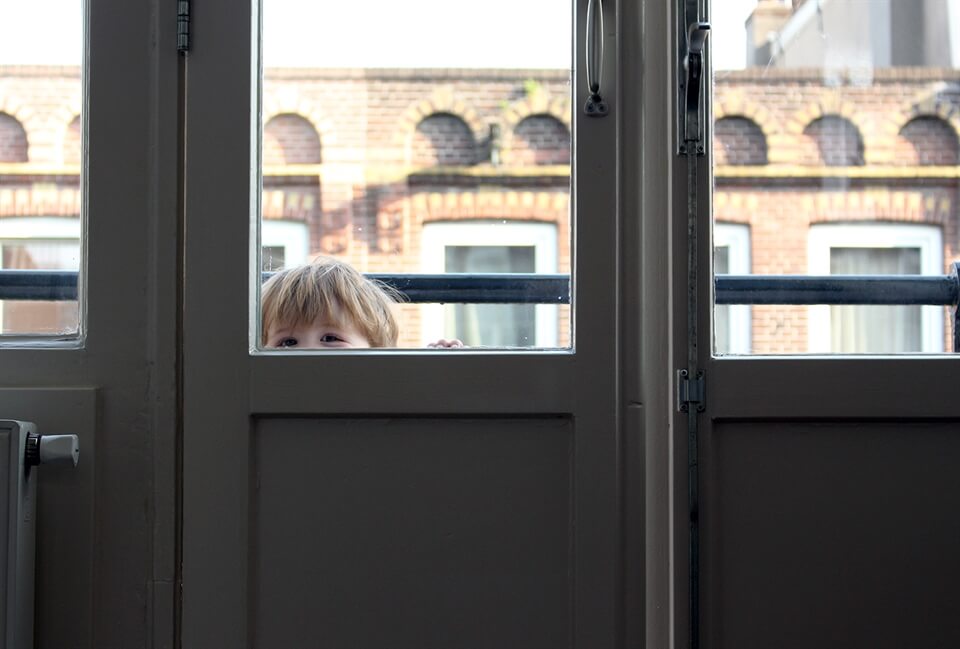
Most people have heard about postnatal depression. Some people are aware of how common it is, affecting more than one in ten mothers, and an increasing number are happy to talk about it in an open, honest and brave way. The world is changing - thank goodness - so that this becomes more possible and more effective at helping others with the condition.
Postnatal anxiety, however, isn't so well researched, documented or discussed. It's linked, of course, and often accompanies postnatal depression, but it's a condition that I think deserves its own discussion and examination. That's why I'm writing about it today.
What is Postnatal Anxiety?
Postnatal anxiety is postnatal depression's quieter, more complicated, possibly more mischievous sibling. It is often there with postnatal depression, playing games and causing all sorts of havoc, but it isn't as easy to spot or catch. If they were playing tag, for example, anxiety would be the quicker, more sly and determined child, while depression would soon reveal itself to be too slow to go on the chase.
I believe postnatal anxiety often gets bundled up with postnatal depression in diagnosis, rather than being treated as a separate illness, but it was my experience (after suffering a bit of both) that it is a trickier, more alarming condition, and one that certainly isn't discussed as much in both social, medical and professional circles.
I've been wanting to share my experience of postnatal anxiety for some time, but I've also been quite happy not to, because even re-living it by writing about it has proven hard and yes, anxiety-inducing. In some ways this is helpful because I can perfectly recall the tightness in my upper body - not just my chest but also across my shoulders and down my arms - and the way the contents of the air around me seem to thin out, all the oxygen floating away like bubbles that pop, disappearing forever, leaving me with vacuous nothing-ness that I desperately suck into my lungs with little benefit. Yes, anxiety is a very real and physical condition.
In the end I decided to take the plunge and share this because when I was feeling my worst, I couldn't find many first person experiences of postnatal anxiety online and that in itself made me feel isolated, abnormal, inadequate... all the feelings that feed anxiety. I write this, therefore, in the hope that this one blog post could one day end up helping someone feel less of those things and more reassured, soothed and encouraged about getting help.
Where my journey with postnatal anxiety began... and ended.
Things falling out of the sky...
Huge big heavy things falling out of the sky and landing completely, solidly, devastatingly on top of my baby son.
This was the full colour nightmare I would have while completely awake, walking down the street, pushing his pram. I would obsess about keeping the bassinet's hood up, even though it was warm and sunny and he liked to look at the clouds and the contrast of tree branches against the sky. It's not like that material hood would even protect him from the blocks of concrete, metal poles of scaffolding, even the fragments of an airplane that I imagined would come tumbling out of the sky and tear his life away from me. The hood was helpless, hopeless.
I was helpless. Hopeless.
There was nothing I could do to stop things falling out of the sky, and I beat myself up about that, and because I worried about it nonetheless. I felt determined to worry about it. It was as if worrying about it was all I was good at so why not continue, because hey, at least I'm good at that? And so a tornado of panic, worry and frustration spun out of control, and it's name was Anxiety.
Things falling out of the sky...
This was the horror that kept me company during my darkest days (and nights) of postnatal anxiety and depression. As with most proverbial lowest of the lows, I can see now that it was also the beginning of my recovery, though I certainly didn't know it at the time.
I only started telling people about the things falling out of the sky obsession a few months ago having mostly recovered, which was over a year since I began obsessing over these imaginary-but-oh-so-real-and-imminent falling objects. Even my partner and closest friends were totally unaware of it though many knew I struggled with my new life as a mother.
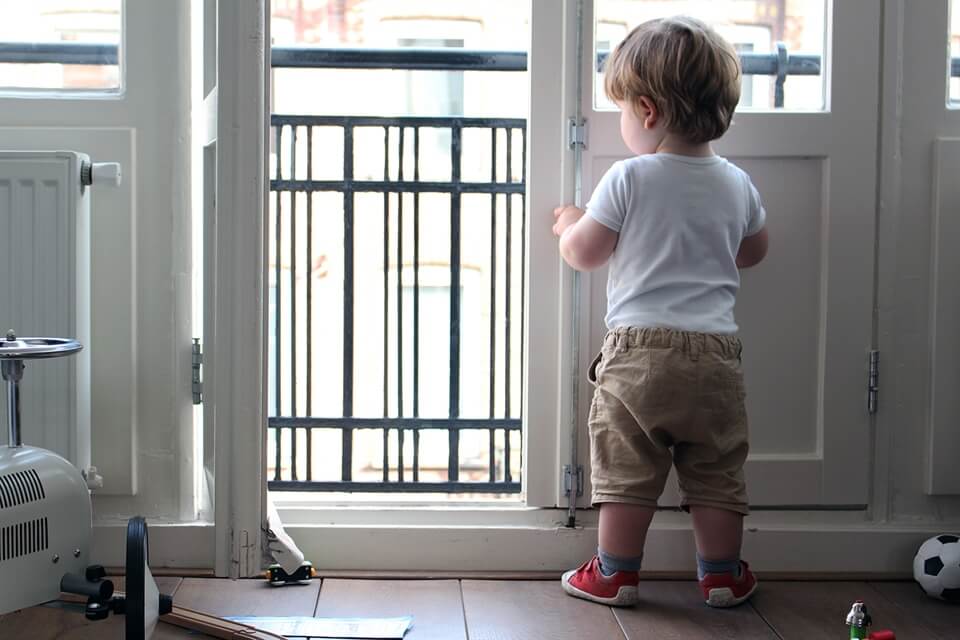
What I Expected from Postpartum Life
I knew I was going to be overwhelmed when I became a mother.
I knew I wouldn't sleep enough.
I knew my body would change beyond recognition.
I knew I was going to be exhausted.
I knew it was going to be hard work.
I knew that a lot of strange and unfamiliar things would happen.
I also knew that with a history of mild depression in my early adult years, I was more susceptible to postnatal depression. I knew this. I talked about it with my midwife, my partner and some of my close friends. I thought about it at length and while I didn't always feel optimistic or positive, It didn't rule my every waking moment while I was pregnant. It didn't keep me awake at night.
I felt confident that I would deal with whatever happened and that all that mattered was my son. All that mattered was he arrived Earth-side healthy and happy. And I felt sure that all the love I felt for him - my very own baby - would just override any fear or apprehension or upset I felt. That was my focus and despite having mild anxiety throughout my pregnancy it worked, keeping me content, level-headed and at times wondefully full of life, hope and excitement.
My son's birth was long and hard but mercifully without drama or complications. He arrived healthy and big and with an alertness in his eyes that surprised me. During the hours after his birth, the joy I felt was mostly related to my no longer being in labour, but as I got to work practising breastfeeding, waking up with him every hour of the night, doing nappy-change after nappy-change, putting my own physical aches and pains to the back of my mind, I felt empowered and a "success".
My baby was feeding - he even put on weight in his first two days! - and I was finally living the madness of this biggest of life changes after so much build-up. I was doing it... I was doing it on less than four hours sleep a night, but I was doing it. Besides, surely the sleep would come for both of us eventually.... Either that or I would survive on the love I felt for him that would also grow, wouldn't it? I just had to keep going. Keep working. Keep doing what was expect of me. And I did. And it didn't suck me under...
Until it did.
What postpartum life was really like
Immediately after a woman gives birth, her body is under a siege of hormones. There are hormones to get her breastmilk flowing; hormones to help her recover from birth; pregnancy hormones slowly leaving her body after being at all time highs for forty weeks; hormones that help her bond with her baby; hormones that help shrink her uterus down to its normal size, painfully contracting it a little as they do. It's unprecedented and it's mind-altering, literally.
As per all the textbooks, the effect of all of these hormones hit me on the fourth day after my son's birth - classic "baby blues". It was early evening, my boy had been restless for most of the afternoon, I'd not slept more than a few broken hours each night for a whole week - including during my forty-two hour labour - and I felt like I wanted to cry forever. I'd also been struggling to feel the kind of pure, unconditional love for him that I expected to carry me through all the hard times. I knew I loved him, but I didn't feel the need - or the calmness in me - to dote on him.
My love felt like a responsibility, a duty. (It's a terrible analogy but it was sort of how you feel about your cleaning your house - you love your house, but you don't feel full of enthusiasm or love when you think about having to clean it...) I took only one photo of him on his first day of life and it was of someone else holding him. This is a fact that saddens me now to my core but I know it happened for the best of reasons; because I was too busy getting the hang of feedings, keeping him safe, holding him and doing what I was supposed to. But that evening four days after I gave birth, as the busyness of the day and the sleeplessness of the week before caught up with me, I just felt so very lacking and upset.
I managed to keep the tears at bay, sitting on the sofa as I watched my partner holding Baby Bird, but he saw the mist appear in my eyes and he asked what was wrong. "I think it's just the baby blues..." I said, which my mum (a doctor) had mentioned in a Skype call the day before.
"Okay," he said and he then commenced "Operation Make Frankie Laugh". The first stage of this operation was dancing around the room with our son as Crowded House played on the stereo... It was adorable.
It was also a huge failure as I just couldn't enjoy it. This in turn made me feel guilty, ungrateful, unworthy... What was wrong with me? I had everything I could possibly wish for? Why didn't I feel so happy? Why didn't I feel so full of love and life?
I started to cry. I cried until I sobbed. And then I sobbed until I couldn't see or speak, or even breathe properly.
Eventually I took myself off to have a shower and under the hot water, I sobbed some more.
Once a little calmer, I sat down on the closed toilet lid and I let my head hang. It was then that I finally acknowledged the real source of my pain. Being able to pinpoint what it was I felt, acted like a sort of branding. It cemented it inside me.
Later I tried to put it in words to my partner: "I feel like we've made a really big mistake," I said.
"It's normal," he said. "It's a huge change."
And that's what everybody close to me said, because it was true. In my relatively priviledged and sheltered life, this was the biggest thing that had every happened to me; the biggest change I'd ever gone through. Plus I was sleep-deprived, physically broken, and emotionally- and mentally drained. And then there were all the hormones.
"But I feel like I'm mourning my old life. I feel like things will never be the same again, and I want them to go back to how they were," I tried to explain further. "I feel like life now is always going to be serious and hard and not my own... I feel so much regret..."
"It's okay..." he said, they said. "You are mourning your old life. Things are always going to be different now. We can't turn back the clock, but life will become fun again, and easier than it is now. You will still do things you want to do... You won't regret having your son... One day you will see it as the best thing you've ever done."
I heard them, but I didn't believe them. I wanted to but just like my inability to stop worrying about things falling out of the sky (which came later) I clung to the cement boulder inside me - the truth, that I'd made a big mistake - because I was good at dwelling on bad. More than that, I felt programed to do just that. Trying to look "on the bright side" seemed as hard as climbing Everest.
I now see this inability to move on from these negative thoughts as the first seeds of postnatal depression, because there is no rationalising depression away. There is no snapping out of it. There is no stopping feeling one way and starting feeling another, just because it doesn't serve you... In fact, depression is the complete opposite; it is feeling the very way that doesn't serve you, that doesn't let you live a full life; it is a sickness that reduces your quality of life. As this very honest and emotive TED talk explains, the opposite of depression is not happiness, it's vitality.
And that's exactly what was missing from my life for the first four months of my son's time on Earth as I continued to feel like I'd made a huge mistake. This combined with the ongoing demands of a newborn baby who never slept for more than forty minutes at a time just clouded everything. While I know (and knew at the time) that it's completely normal for a very young baby to cry at length, especially in the evening, I wasn't prepared for how personally I would take it.
Again my hormones meant that I was programmed to respond to his cries, but when they often came once an hour all day and all night, it felt impossible and soul-destroying when nursing him, holding him, singing to him, shh-ing him for hours on end just didn't help. Now I know exactly why people choose to torture others by playing the sound of babies crying playing non-stop. This all ate into whatever reserves I had to try and beat depression and my energy, my lust for life, my spirit, my interest in things, my curiosity, my passion, my sense of humour were all steadily being eroded.
Needless to say, by this point I realised that I had been wrong about how I would deal with postnatal depression. Because the love I felt for my baby boy didn't wipe out all the fear, the apprehension, the sadness, the doubt, the regret. The love I felt for my boy wasn't enough. The love I felt for my boy didn't save me from developing postnatal anxiety and depression. To begin with this realisation only added to my distress - I don't love him enough, I'm a terrible mother, my son deserves better than this - but eventually and with the help of others, I came to see that this was a clear sign that I was more unwell than I thought.
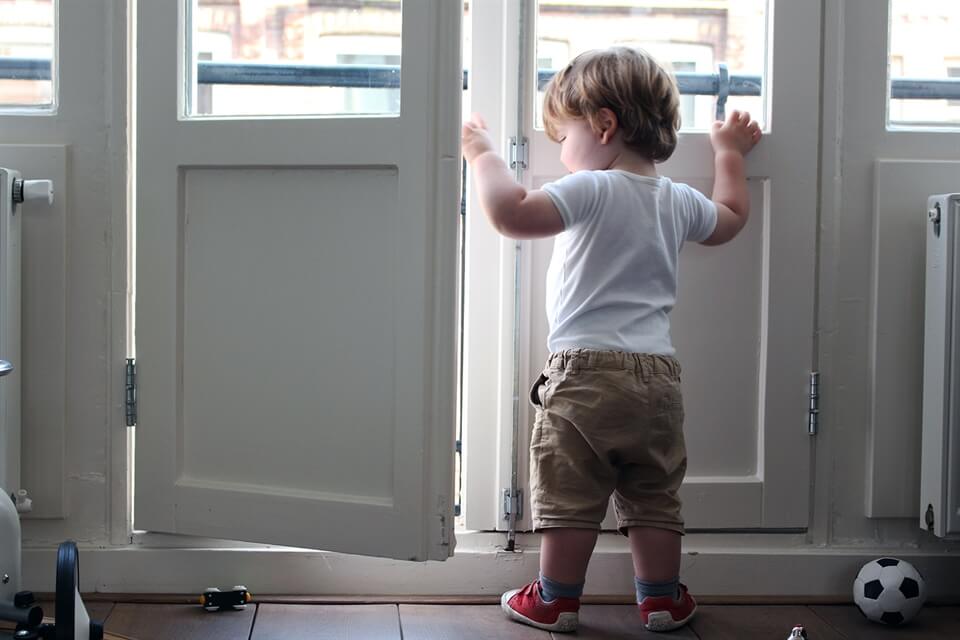
It Started with Post-natal Depression...
There have been studies of sleep deprivation which find that people who don't sleep enough are ten times more likely to become depressed or develop anxiety. We all need sleep to stay healthy, to function, to beat illnesses, like depression. So it was no surprise that after many months of my son waking every two or three hours at night (or more), I was depressed. (Plus, you know, HORMONES!)
Although I didn't really believe this at the time.
What I believed at the time was that I was a new parent, and new parents don't get much sleep, and it sucks, but you get through it.
My response to this now is BULLSHIT.
Of course, it's true that you don't get enough sleep and it sucks, but you don't just get through it. At least, not everyone does. I didn't, and I'm not ashamed of that.
Instead, you should ask for help. You should do what you can to prioritise rest and sleep. (You can read more of my tips for sleep deprivation here.) You should not suffer more than you have to. If there's one thing I've learned from this parenting malarky it's that there is nobody giving out medals for how little sleep you've had or how much you've suffered for your newborn baby. But I didn't know this back then. So there I was, depressed, sleep-deprived and wondering where my medal was....
... And Then Post-natal Anxiety Came Along for the Party.
Every morning when he was very little I would force myself to an almost vertical position and shower or no shower (obviously often he latter!) I would take Baby Bird for a walk along the Amstel River. A big baby at birth, he very quickly became even bigger as his appetite only seemed to increase. In the beginning, I loved pushing him in his pram, watching him fall asleep or gaze at the passing clouds in the sky. But then I would also look up at the sky and start to wonder.
Or I would spot that scaffolding ahead in the street, or at a plane overhead and I would jump to the most horrifying conclusions... At some point - I can't honestly say when - I decided to take Baby Bird out in the carrier instead of the pram for those walks, even though it hurt my back and I couldn't walk as far, and feeding him became more complicated. True, he often slept more that way, but I also knew it was because I felt he was safer there. I felt I was safer that way too, because then I couldn't let go of the pram, or it couldn't be grabbed out of my hands... you see where my mind was wandering...
It's hard to describe anxiety without feeling like your words will invite the inevitable "Just relax!" or "Chill the f*&k out" comments. If you say it's like a constant panic attack, it's too dramatic and unbelievable a concept, and truth be told, it wasn't like that for me though I believe it is for many others, which must be unbearably horrific. It's also not like normal "worrying" because that is too passive and not physical enough.
That kind of worry you can distract yourself away from through a Netflix series or maybe baking a cake. This was different. It stayed with me - on my body - no matter what I did. The descriptions that come to my mind are annoyingly scrappy and don't complement each other well: "like wearing too-tight clothes you can never take off", "like standing on a balcony at a great height and the wall you look over keeps shrinking", "like running on a treadmill but somebody else is in charge of the speed." Perhaps it's easier to say what I almost never felt for many, many months; calm, rested, at ease, level-headed, hopeful, useful, excited about the future, drowsy enough to sleep...
I also didn't dream very much, both in the figurative daydream sense and in the literal sense of sleep. Of course, you don't dream when you don't sleep for long periods, but I also didn't drift off on clouds of thoughts during the day, which as a writer I normally spend far too much time doing. Instead, the thoughts that rattled around in my mind were all soaked in negativity - I was doing this wrong, I was doing that wrong, Why couldn't I relax? Why couldn't I sleep? Why did my baby's cries make me want to crawl out of my skin and run away? And yes, eventually... I could have killed Baby Bird by going for a walk with him today, what if something had fallen out of the sky... - Needless to say these thoughts created a whirlwind of panic and listlessness inside me, but I also didn't realise how much I would miss daydreaming and dreaming at night until it stopped...
The Beginning of the End...
I wish I could tell you that as soon as I felt a physical panic about things falling out of the sky I took myself off to the doctor and I sought help. I wish I could tell you that I picked up the phone to my midwife to tell her that the baby blues were still with me months after giving birth like she asked me to at my six-week check. I wish I could tell you that I confided in my partner that I thought I was depressed. But I didn't do any of these things. I just kept plodding on labelling all my symptoms - including lying awake at night in-between the times my son did wake up for a feed - as normal life for the mother of a young baby.
Instead it took my mother broaching the subject with me during my first visit back to the UK to confirm I was unwell, and to begin the process of getting better. A retired GP, she asked me to complete the Edinburgh Postnatal Depression Score questionnaire and that was the first time I could really see in black and white how low I'd become. (A year later, I looked at my answers and I honestly didn't recognise myself.) Weirdly though, the day I realised I was poorly, and after promising my loved ones I'd seek help, I slept better that night than I had in over three months.
Back in Amsterdam, I discussed my concerns with the doctor who carried out my son's four-month check-up. She quickly referred me to a program that specialised in helping mums with postnatal depression, and after a few very tearful and frankly terrifying talking sessions, I was prescribed an anti-anxiety medication to help me sleep at night. I also continued with a variety of different counsellors (unfortunately the first few I tried weren't great fits), I stopped drinking alcohol during the week, and I began taking extra vitamin D and herbal anti-anxiety tablets.
At this point I honestly believed I was more depressed than anxious. In the grand scheme of things, it didn't seem to really matter what the specific diagnosis was, or which of these pesky illnesses was more dominant, but the way I responded to the anti-anxiety medication makes me strongly believe anxiety was more of a problem than I realised; it was certainly what kept me awake at night. In addition to enabling me to go back to sleep after being woken by my baby, the slow-down I felt in my head and the noticeable relaxing of my body - all thanks to the drugs and help I'd sought - made me see just how much stress and worry I'd been carrying on my literal and metaphorical shoulders.
At around the same time I also started to practice yin yoga regularly, and I took small steps to exercising more by starting barre classes, and both these things helped me feel physically better, and more importantly think clearer so I could deal with the unpleasant thought-processes and those fears of things falling out of the sky....
I also slowed down.
I made sleep my priority, going to bed at 8.30pm most nights and taking naps with my son every afternoon. I didn't go out very much during the evenings and this meant I sometimes didn't have the energy to see people both in Amsterdam and when I went home to the UK, but I surprised myself by being completely okay with that... most of the time. My partner and I decided to put our plans to buy a house on hold and we didn't plan any holidays or big trips until I was feeling ready. We also discussed ways that I could have more time on my own and we used formula milk for a couple of feeds a day so I could spend longer away from Baby Bird as the pressure of exclusively nursing him was impacting my anxiety as I felt I could never be away from him.
Eventually, we also got our son in daycare two days a week and I slowly went back to work which helped remind me of the other parts of my life that matter to me. Admittedly, I only took on work projects that I really wanted to do, but the first few invoices I sent out for work completed as a mum were the most satisfying I'd ever earned.
I also started writing fiction again, which soothed me greatly. I also decided to tell people - both old friends and relatively new acquaintances - that I was dealing with postnatal mental health problems, because one of the things that fueled my problems, I believe, was that every other new mother I met seemed to be nearly 100% enjoying postpartum life and so I quickly began to wonder what was wrong with me. It's also true that I would have told people if I had any other illness that affected my day-to-day life, which this definitely did, so why not this one?
How I Feel One Year On...
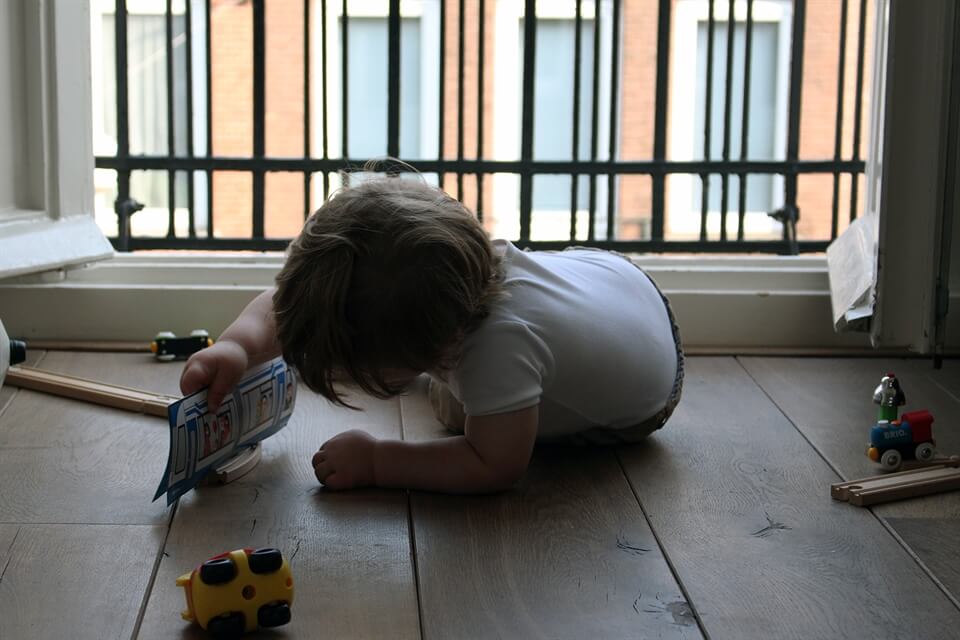
Today I feel good. Today I don't worry about things fall out of the sky (at least no more than I used to before my son was born!). Today I am constantly amazed by my love for my son; I'm not concerned that it's "not enough". Today I often feel guilt, doubt and stress, but it doesn't consume me - at least not all the time. In fact this morning after I dropped my son off at daycare I had to stop and sit by the same river I mentioned above and just gather my emotions before I cycled on to work because it had been hard leaving him there and that triggers a process of doubt and discomfort that can feel suddenly overwhelming.
The key difference, I suppose, is I know that these feelings, as real as they are, do pass, and I actively take time to let them pass, like stopping and having a cry on the side of the road! And yes, I know I'm lucky that I have a flexible job that allows me to be ten minutes late to work!
Perhaps most importantly, today I feel optimistic about the future, and there are times every week when I feel calm, at ease, relaxed, hopeful, useful... Today I laugh at things I would have found funny before my son was born. Today, when I feel stressed, worried or a little panicked, I try to breathe my way through it. Sometimes it works, sometimes it doesn't. Today, I'm okay with that, and that is all I can ask for.
Recovery is Not Linear...
My son is now 22 months and it was around this time last year that things got harder before they got easier, despite seeking help for my depression and anxiety nearly six months previously. Indeed, for the remainder of 2016 my recovery was more a rollercoaster than a smooth journey. From what the experts tell me, this is normal. It's sadly why I stopped writing my weekly motherhood diaries to my son and for many months I stopped blogging completely, because it all just intensified and internalised the motherhood journey for me, when actually I needed to focus on other aspects of my life. I took on more client work, which definitely helped me switch off my "mum-brain" and switch on my "work-brain". I also began doing research and some preparation for a new business idea, my WriteNOW affirmation cards for writers which has also helped greatly. My partner and I started having regular dates, I prioritise me-time or socialising with friends, and I have also spent a few nights away from my son, though it took many months of mental preparation - and finally stopping breastfeeding after fourteen months - for this to happen. Another key improvement came when our son started regularly sleeping through the night - just after his first birthday - though I continue to protect my sleep and I do still take herbal sleeping tablets because I can still have sleepless nights.
Rightly or wrongly, sometimes I do have flashes of regret like those I felt in the first few weeks of his life, but this doesn't detract from how I parent my boy. It's just a fact that I had a very nice, free and comfortable life before he was born and sometimes - like when he's throwing food on the floor, or tantruming because he can't put an electric toy in the bath - I miss it. Now my life is still very, very nice - and is filled with so much more laughter, activity and joy - but it's silly to think I have the same freedom as I used to, and it's okay to sometimes miss that. I am learning how to navigate feeling this way without letting it become a thought process that affects my mental health.
Honestly speaking, I also feel like parenting doesn't fulfill me in the way I expected, or in the way my work and creative projects do. This may sound harsh and "unmotherly", but it's the truth. Somewhat perversely, being honest about this with myself, has helped me go from constantly worrying there was something wrong with me, to doing what I can to get the balance right so when I am with my son, I'm really with him not plagued by new seeds of anxiety born out of the panic of finding parenting more challenging and uncomfortable than I'd prefer. In short, I find being a mum harder than I'd like, and that's okay. The more honest I am with myself, and the more I look after myself and give myself a break when it feels tough, the better mum I am. This is the realisation anxiety rid me of, and every day I do what I can to never let anxiety rid me of this, or the joy of being both a mother and me, again.
If you think you have postnatal anxiety or depression...
While they are two very different beasts, if you think you're experiencing postnatal anxiety or depression, my advice to you is the same: seek help.
Do not battle on alone. Know that this is an illness that is out of your control. What is in your control - to an extent - is how you handle it, i.e. by seeking help, having treatment and resting. There are several resources online, but the most important step is that you tell a medical professional. If your doctor isn't the right person, try your midwife or maybe your child's doctor, if that is a different person. If you're fortunate enough to have the funds, seek out a private therapist who specialises in postnatal mental health and if you can't find someone in your area, try speaking to someone online as many therapists now conduct sessions over Skype. It may take you a while to find the right person to talk to - it did for me - and it can be incredibly draining in the beginning talking about how you feel and what has happened to you, but please do keep going, and don't deny yourself the opportunity to try medication if it is recommended to you. Taking those anti-anxiety drugs at night was the single best thing I did in treating my own condition, and I continued to use them when I needed to for over a year.
I am proud of the treatment I underwent to get better. You should be proud of everything you do to get better, be it crying in the shower when you need to, or making a doctor's appointment, or telling someone you trust that you are finding things hard and you want to feel better. Be proud of everything you do to get better.
If you think someone you care about has postnatal anxiety or depression...
Actively help them. Don't ignore their struggle. But don't crowd them or psycho-analyse their behaviour, instead just be there nand be proactively supportive. This could be as simple as taking care of the baby so they can sleep, spending twenty minutes tidying or cleaning their house, or filling their freezer with meals, because sometimes practical help can be just as impactful as emotional support, especially if they aren't sleeping enough. A lack of sleep makes everything feel emotional and draining, so sitting down and talking about how hard everything is understandably isn't an appealing proposition for an overtired mother, so don't assume they want to talk about it, rather be a proactive helping hand by lightening their load in other ways.
When or if there is a opening to ask them how they're feeling and if they think talking to a professional would help, again offer as much practical support as you can - "I'll look after the baby", "I'll come with you" or "Shall I make an appointment at the doctor for you?" - because for me at my poorliest, making appointments or phone calls was a truly frightening proposition.
Always, always, always, tell them that they are a wonderful mother. Tell them that they're strong and capable, even if they don't feel it. Remind them how the hormones, the lack of sleep, the huge life change they're adapting too, a chemical imbalance in their brain and many other reasons is what is making them unwell. Tell them it's not their fault and they didn't do anything wrong. Tell them that their baby loves them so much, even if he/she doesn't know how to show it yet. Tell them that they're doing a fantastic job. Tell them that you are proud of them. Tell them that their baby is proud of them. And if they cry, let them cry and cry and cry. Don't try to get them to stop.
Don't tell them things like "a relaxed mum means a relaxed baby" because do you think a mother doesn't already know this? Do you think she doesn't want to be relaxed? At that moment in time, she feels completely powerless to relax so comments like this may only heighten her anxiety and low mood... I honestly found this one of the hardest things to hear as it seemed to confirm my underlying belief that I was inadequate because I couldn't relax.
If you're also a parent, don't tell them what your experience of having a baby was like - unless they ask - and try to avoid giving specific parenting advice or tips as all babies are different and sometimes I tried things that other people did to try and get Baby Bird to sleep, and when it didn't work, I felt like a failure. If they ask you for advice, then sure, tell them what worked for you but remind them that each baby is unique. Instead, if you can, use your experience to hold the baby for an hour so the mum can rest, or do nappy changes whenever you can, or offer to babysit so they can sleep. I would also avoid saying things like "it won't last forever" or "it will get easier" because I didn't always find that reassuring or helpful - when you're in the thick of anxiety, another hour feels like eternity, so the prospect of nothing changing for a few more weeks or months felt terrifying. Sometimes it was just the best thing to hear someone recognise my pain by saying something like "Bloody hell, you've been through a lot, Frankie" or "It really sucks that you're having a hard time. It's not fair." Because that's how I felt and it's nice that someone else acknowledges that.
And if you don't know what to say, or you live far away so can't offer practical help, just check in with that person. Say hello and tell them you're thinking about them and that you love them. Again, tell them how well they're doing, how brave they are, how proud you are of them. Tell them that they can call you anytime they want... they may not do it, but believe me knowing you have that option is a great comfort.
And if you do just one thing, please tell them they're a wonderful mother, because they are. Tell them depression and anxiety has no bearing on their worth as a mother, even though they will feel like it is the only thing that defines them as a parent.
I want to end this article with a quote that got me through some of my darkest days. It's from Matt Haig's memoir about his own struggles with depression and anxiety, Reasons to Stay Alive.
"Depression is also smaller than you. Always, it is smaller than you, even when it feels vast. It operates within you, you do not operate within it. It may be a dark cloud passing across the sky but - if that is the metaphor - you are the sky. You were there before it. And the cloud can't exist without the sky, but the sky can exist without the cloud."
Still to this day, when I feel like the cloud is casting a shadow over me, I say to myself over and over and over again, I am the sky, I am the sky, I am the sky.
And you are the sky too.
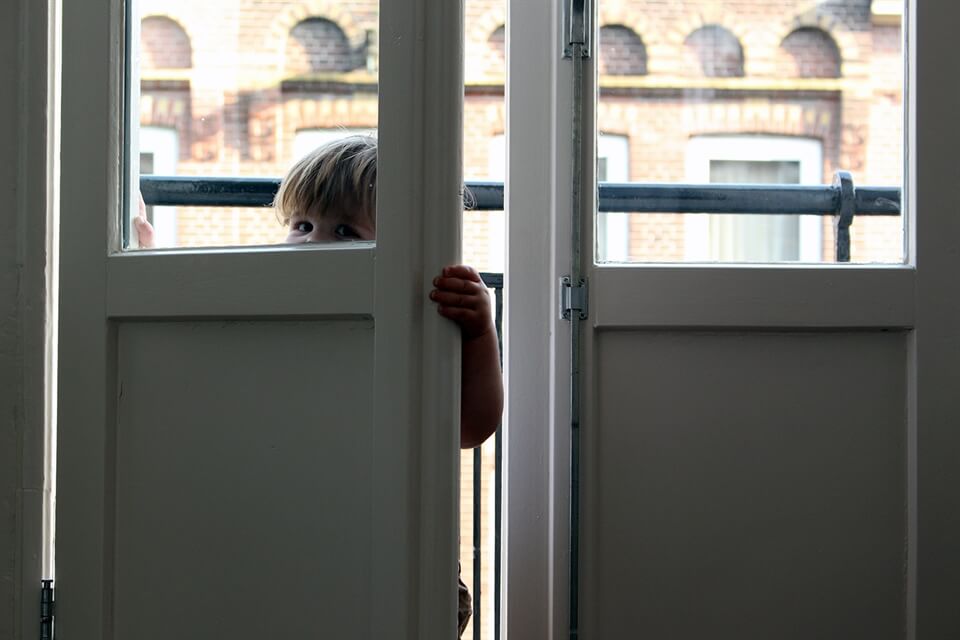
Photos of my son, aged 22 months, playing happily while his mother proudly takes photos.
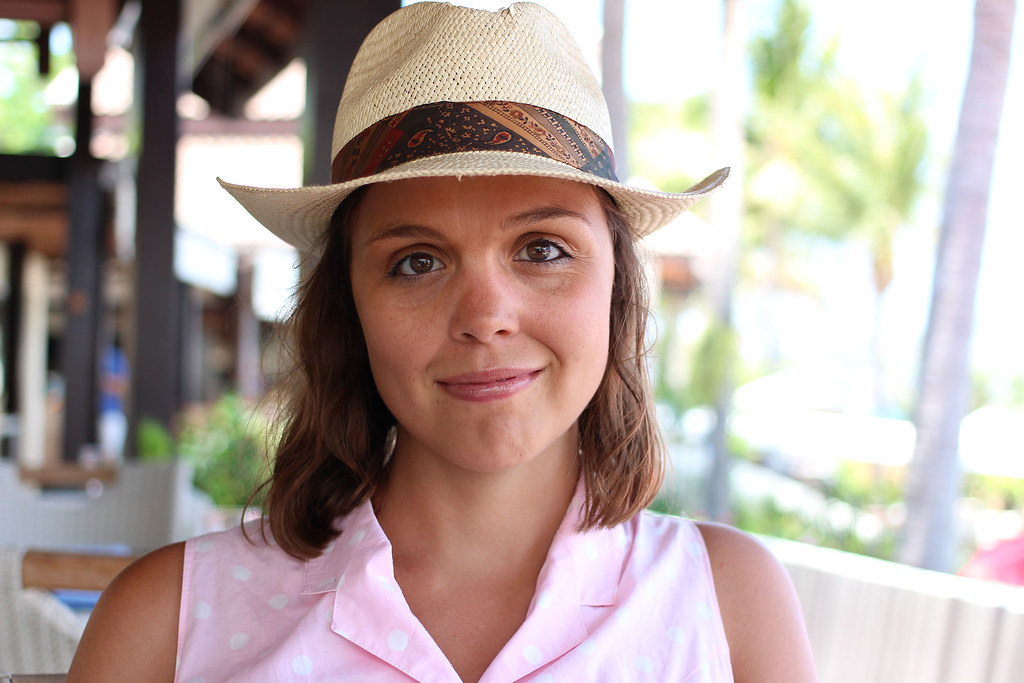
Frances M. Thompson
Find Frankie on Facebook, Twitter, Instagram, Pinterest, and Google+.
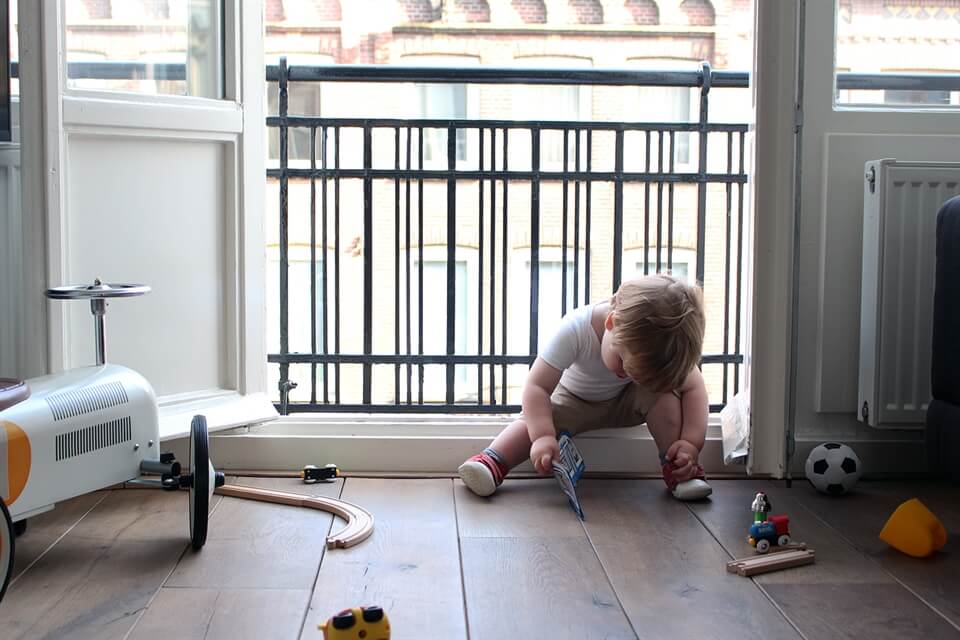
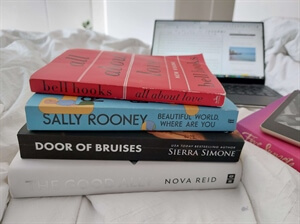 Book Reviews: Mid-Year Book Report 2022
Book Reviews: Mid-Year Book Report 2022 My Thoughts: The Life-Enhancing Joy of Romance Novels
My Thoughts: The Life-Enhancing Joy of Romance Novels My Thoughts: 21 Things That Helped Me in 2021
My Thoughts: 21 Things That Helped Me in 2021 Family Travel: How to Travel with Kids - My Golden Rules
Family Travel: How to Travel with Kids - My Golden Rules Self-Love: Self-Care Activities for Kids
Self-Love: Self-Care Activities for Kids About the Blog & Frankie
About the Blog & Frankie Welcome to My Amsterdam Travel Blog!
Welcome to My Amsterdam Travel Blog! Welcome to My Luxury Family Travel Blog!
Welcome to My Luxury Family Travel Blog! Welcome to My Writing Blog!
Welcome to My Writing Blog! Lover Mother Other: Poems - Out Now!
Lover Mother Other: Poems - Out Now! I Write Stories That Move You
I Write Stories That Move You Order WriteNOW Cards - Affirmation Cards for Writers
Order WriteNOW Cards - Affirmation Cards for Writers Work With Me
Work With Me